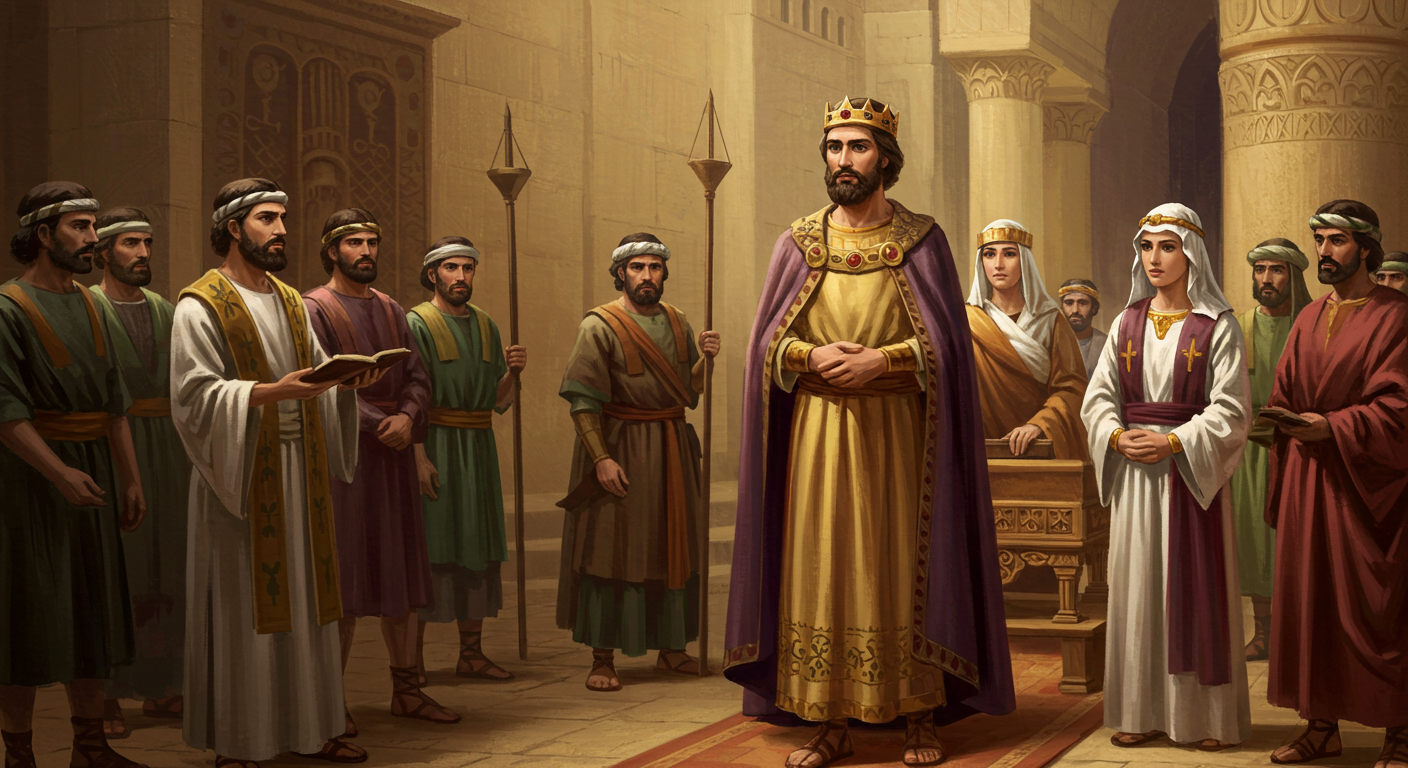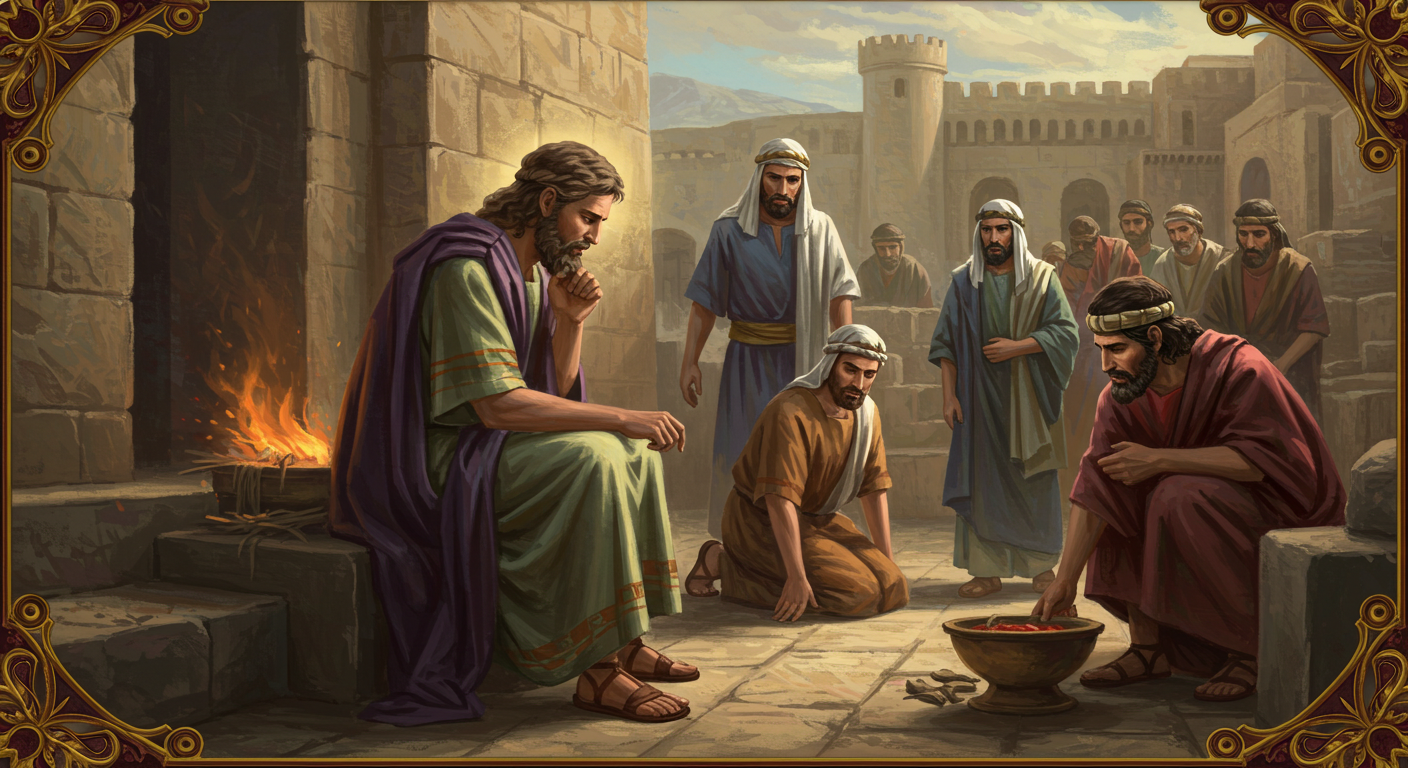Discover Abijah’s poignant tale—a son’s tragic fate underlines legacy and divine justice amid Israel’s divided monarchy—a story resonating with timeless truths.
The Story of Abijah: A Tale of Tragedy and Legacy
In the annals of scripture, nestled within the intricate tapestry of Israel’s monarchy, lies the poignant tale of Abijah, the son of Jeroboam. His story, filled with underlying themes of tragedy and legacy, offers profound insights into the splintered reign of his father and the inevitable consequences of disobedience to divine commands. More than just a historical account, Abijah’s short-lived narrative echoes through time, underscoring the frailty of power and the enduring weight of divine prophecy.

Introduction
From the moment you delve into the narrative of Abijah, you are met with a somber tale underscored by foreboding. Abijah, the son of Jeroboam—Israel’s first king after the split from the united monarchy—lived during a tumultuous period marked by political upheaval and spiritual decline. His very existence is a reminder of the powerful forces at work during a nascent nation’s struggle to define its identity amidst divine promises and human failings. Despite his minimal direct involvement in the scriptural events, Abijah’s illness and subsequent death stirred significant repercussions that underline the biblical theme of legacy overshadowed by sin. His story, uniquely tragic yet instructive, invites contemplation on the nature of life, destiny, and divine justice.
Their Story in the Bible
The tale of Abijah, though brief, is saturated with elements of melodramatic tension that Luke could only dream of. You are introduced to him in 1 Kings 14:1-18 amid his ailment, marking the beginning of a pivotal moment for the kingdom of Israel. Jeroboam, Abijah’s father, had been appointed king by divine decree, securing the northern tribes after they split from Judah’s grasp. Yet, Jeroboam’s reign, characterized by idolatry and rebellion against God, cast a long shadow over his legacy—a shadow fully realized in Abijah’s story.
In an attempt to discern the boy’s fate, Jeroboam instructed his wife to disguise herself and seek the prophet Ahijah at Shiloh. This deceitful plan to gain insight from the now-blind seer sets the stage for a revelation that transcends Abijah’s physical condition. Ahijah, despite his blindness, recognized the queen’s disguise. It is here that the gravity of Jeroboam’s disobedience comes crashing down; the prophet foretold not only Abijah’s death but also the impending downfall of Jeroboam’s dynasty, attributing it directly to his waywardness.
Abijah’s death was indeed tragic, but it carried an ironic note of deliverance. The scripture marks him as the only member of Jeroboam’s household who found favor in God’s eyes. His early demise is depicted as a merciful reprieve from the calamities awaiting his father’s lineage. Here, the script flips—death morphs into a compassionate escape from the further consequences of a legacy tainted by disobedience and sin.
Lessons from Their Life
In unraveling Abijah’s brief sojourn, you encounter valuable lessons embedded within its narrative fibers. His story provides a perspective on the juxtaposition of innocence and inherited legacy. Abijah did not command armies nor devise conspiracies; rather, his role was passive in the grand tapestry, yet through him, you grasp the concept that personal legacy can be dictated by actions far beyond one’s control. The first lesson resonates with the idea that life’s brevity does not negate its significance. Despite his short life, Abijah’s existence and fate were integral to the divine narrative at the time. His death causes one to reflect on the oftentimes inexplicable turn of events where perceived tragedy could very well be a mask for divine compassion.
The second lesson is a meditation on divine justice. Jeroboam’s story reflects the consequences of aligning one’s path against divine instructions. Abijah’s undeserved fate seems nearly unfair until you view it against the backdrop of a larger narrative: a warning to Jeroboam and all seeking power as leverage against divine will. Despite the tragic curtain closing on a young life, the subsequent unfolding of events validated divine foresight and righteousness, illuminating the pathway beyond personal selfishness toward generational integrity.
The third lesson rooted within Abijah’s story is a poignant reminder that your actions can have a ripple effect on others, especially those closest to you. The consequences of Jeroboam’s choices profoundly affected his son, illustrating how the interwoven fabric of personal decisions and communal well-being cannot easily be unraveled.
Connection to Today’s World
In today’s world, Abijah’s tale reverberates with associations that transcend ancient history. You often find yourself at the crossroads of action and consequence, where the decisions of another can deeply impact your own life. In a society where power struggles and ethical dilemmas are ever-present, the narrative of Abijah serves as a beacon—encouraging you to consider how the legacies you leave behind are not solely determined by overt achievements but also by the subtler threads woven through your life’s tapestry.
In modern contexts, families are beset with similar predicaments—navigating through the repercussions of choices made by preceding generations. Abijah’s narrative reminds you that often, the factors influencing your path may be outside your control, yet your response can still cultivate authenticity and position you to be favored regardless of surrounding tempestuousness. Reflecting on his story can guide individuals to pursue lives steeped in conscience and integrity, where decisions honor both personal authenticity and communal well-being.
In workplaces, community leadership, or personal relationships, you’re repeatedly faced with moments requiring alignment to ethical truths. Jeroboam’s pursuit of unrighteousness and the resultant demise of promise warn against compromises that may corrupt the core foundations of identity. Abijah’s fate challenges you to rethink narratives of fairness and opportunity within your own life choices, recognizing the potential for responsibility to extend beyond your direct line of sight.

Key Bible Verse
A verse that stands as a pinnacle within Abijah’s tale is this profound expression of distinction amid forewarned destruction, emphasizing the lad’s uniqueness:
This verse encapsulates the essence of Abijah’s story—a bittersweet commentary on finding goodness amidst an overwhelmingly negative backdrop. Despite his lineage being marked with disapproval, Abijah’s innate goodness provides a striking insight into individual worth beyond inherited reputation.
Thought-Provoking Question
As you navigate through the various crossroads of decisions and consequences, you might pause to ponder: “How do I actively cultivate a legacy of goodness and integrity in an environment where the past may seem like a shackle to my future freedoms?”
Each story within scripture encourages deep reflection, and Abijah’s tale is no exception. Reflect on his narrative, understanding that within the vast net of life’s inherited challenges, there remains a choice to seek and embody divine virtues.
Historical/Cultural Context
The story of Abijah doesn’t stand alone but is enveloped in the broader historical context of the divided monarchy of Israel. In the aftermath of Solomon’s reign, the unified kingdom splintered—setting the stage for political and religious tensions that would shape the narratives of countless figures like Abijah. Understanding the backdrop of idolatry and political stratagems that characterized Jeroboam’s rule grants greater insight into Abijah’s narrative, elucidating the profound effects of leadership choices on generational legacies.
Comparison with Other Characters
Abijah’s story mirrors that of countless scriptural figures caught in the complications wrought by familial dynamics. His tale contrasted with Solomon’s son, Rehoboam, offers a stark parallel: both were sons of pivotal kings who faced the repercussions of past choices. Yet where Rehoboam’s decisions further fractured an already divided kingdom, Abijah’s purity serves as a personal redemption narrative within a grander story of rebellion and downfall.
Prayer
Reflecting on Abijah’s story, consider this prayer as a guide for spiritual growth and understanding:
“Lord, help me to understand the significance of my actions and their generational impact. Grant me wisdom and humility to cultivate a legacy that honors You. May I seek to uphold goodness irrespective of the challenges inherited from the past Amen.”
As you ponder the life of Abijah, may you discover greater clarity about your legacy. His story is woven into the divine fabric of eternity, inviting you to explore the depths of tragedy and triumph within your path.







